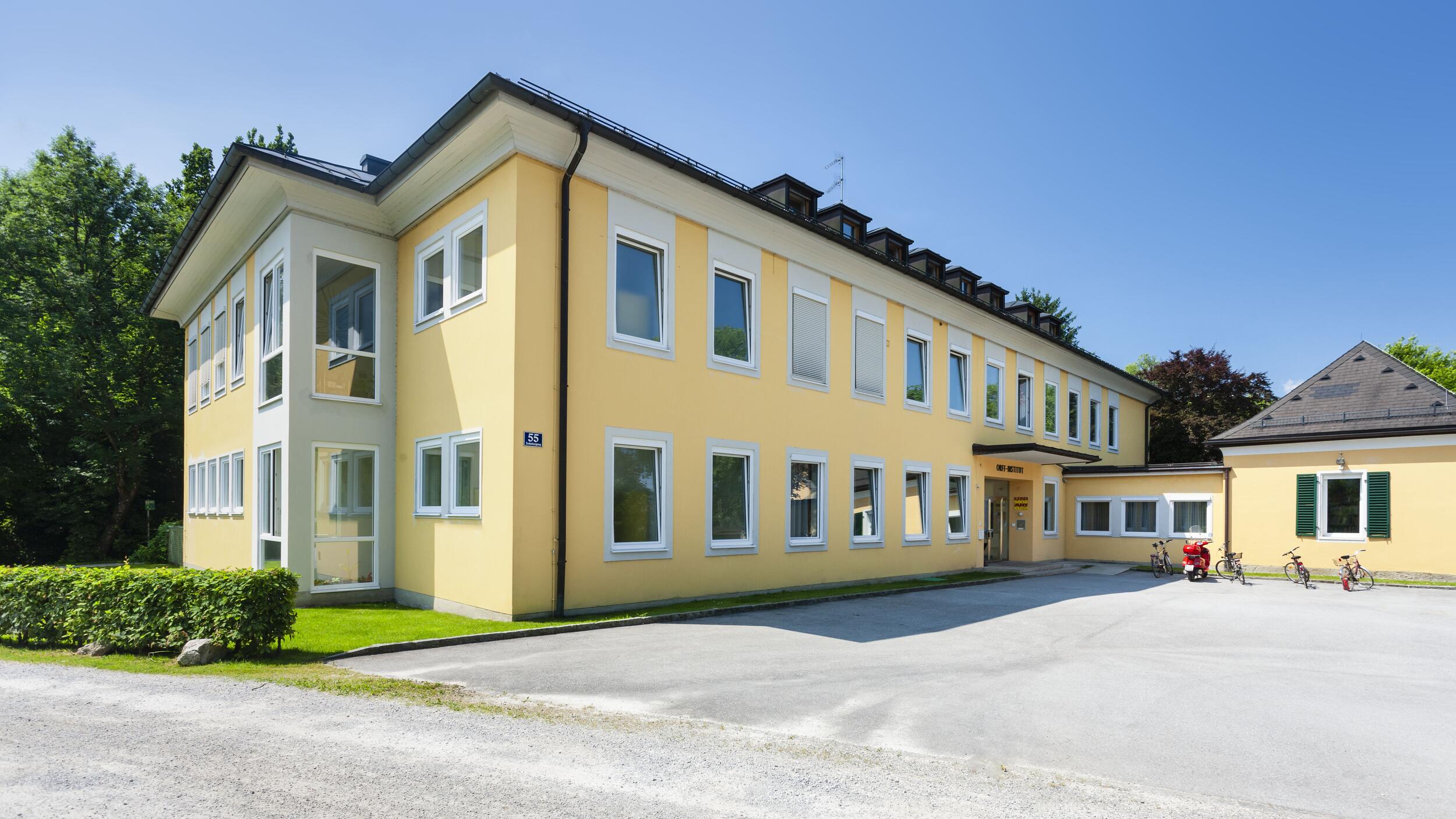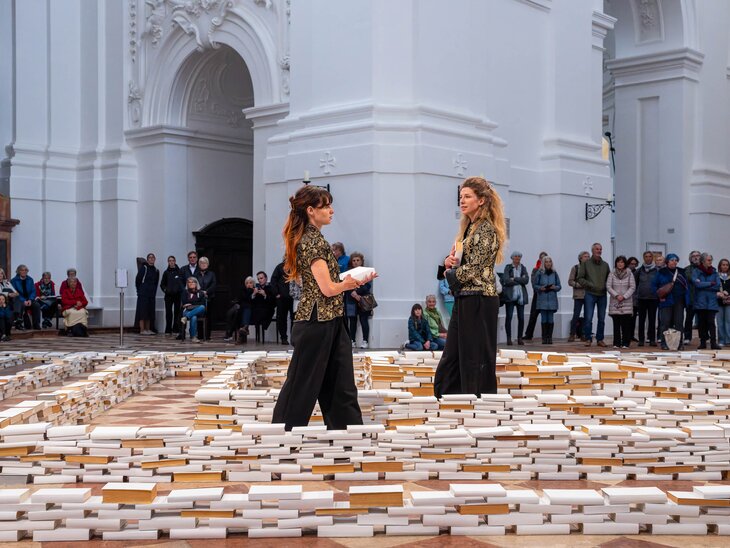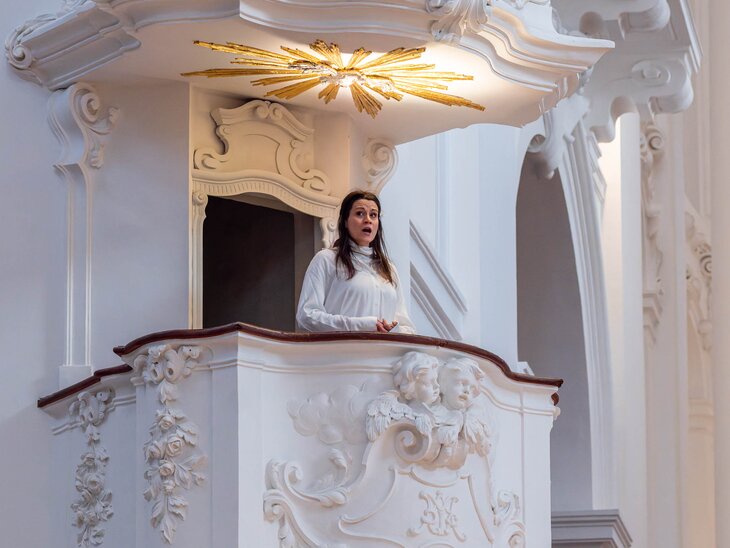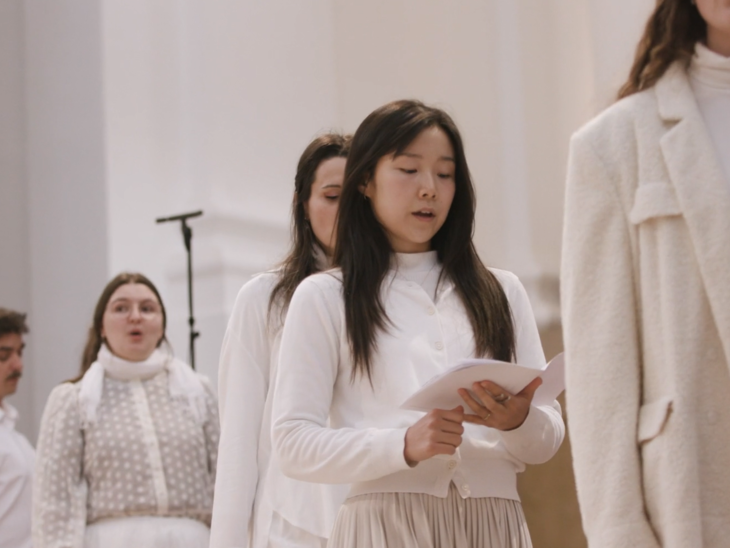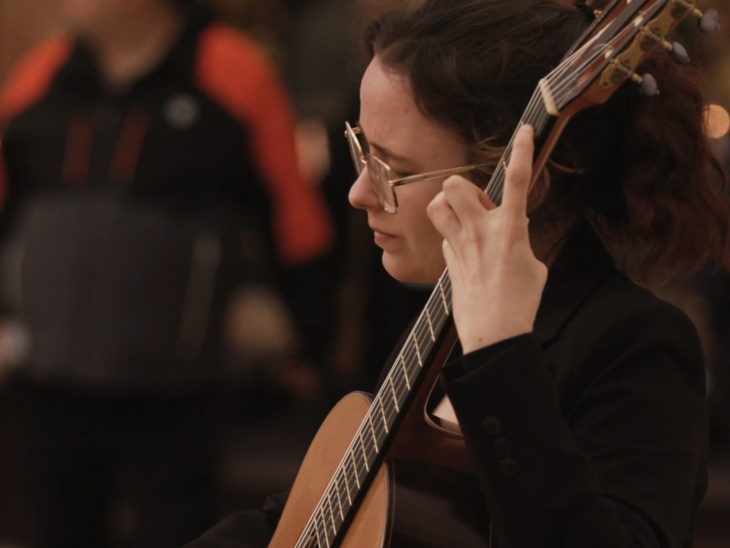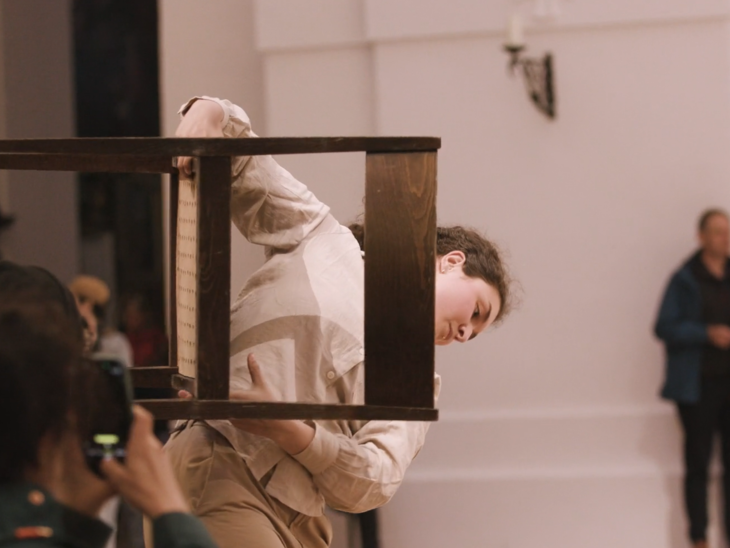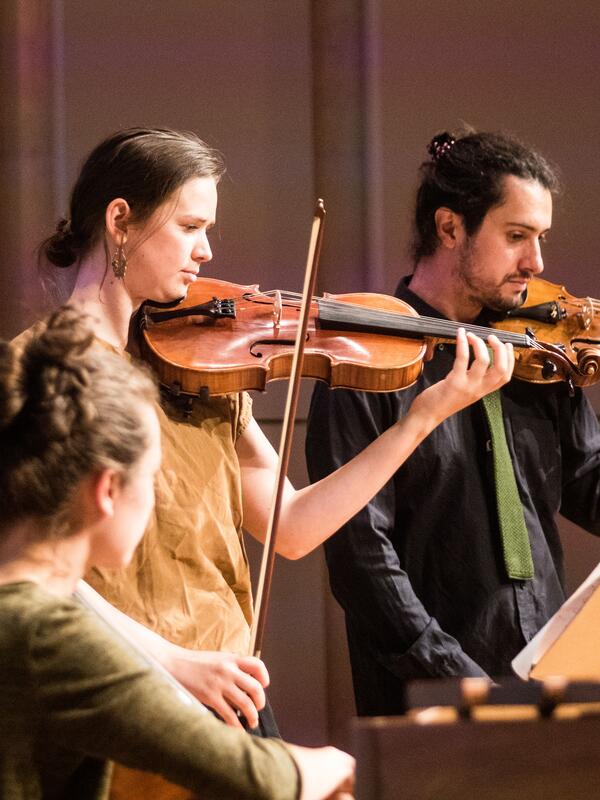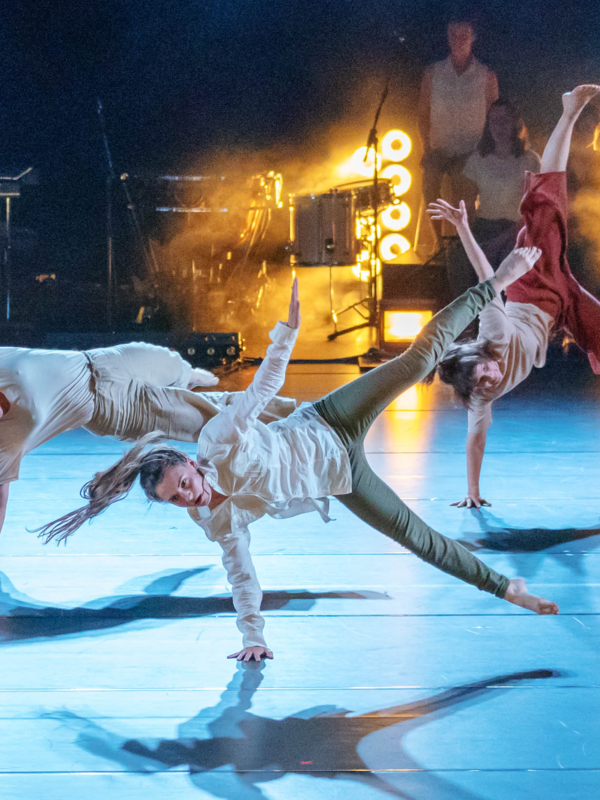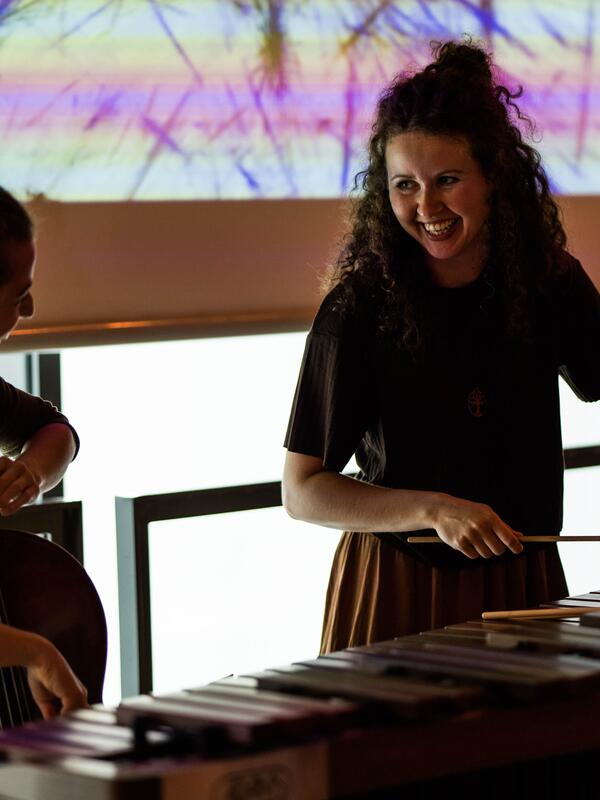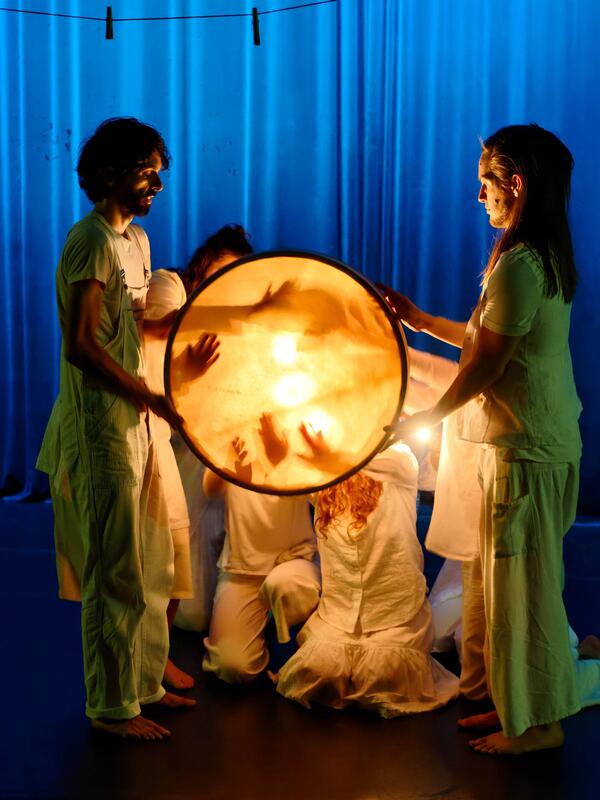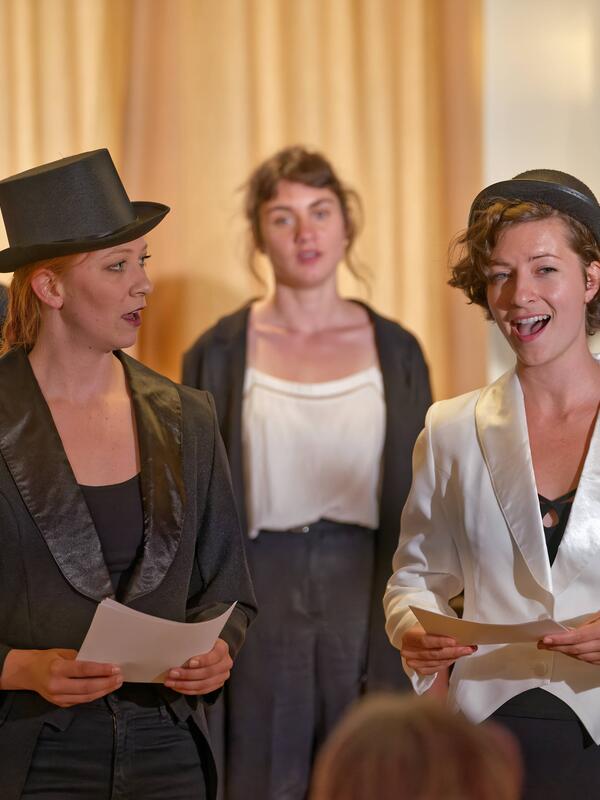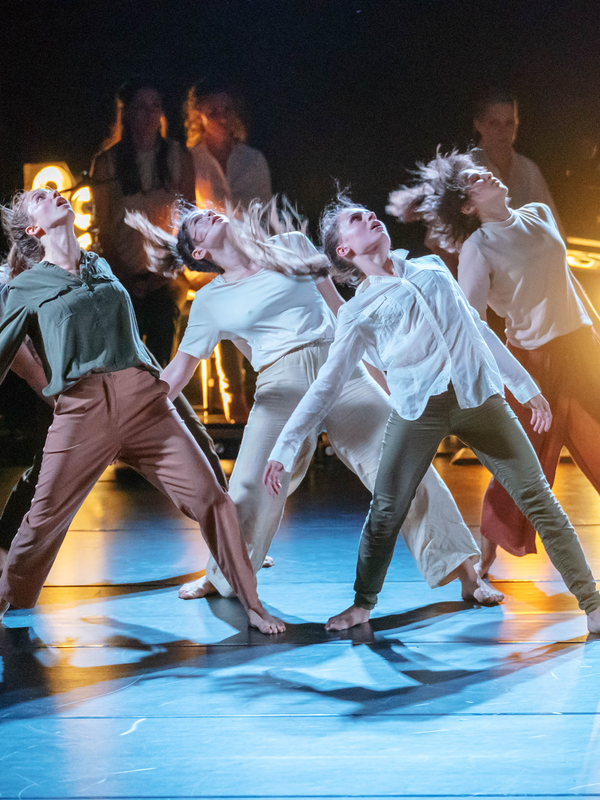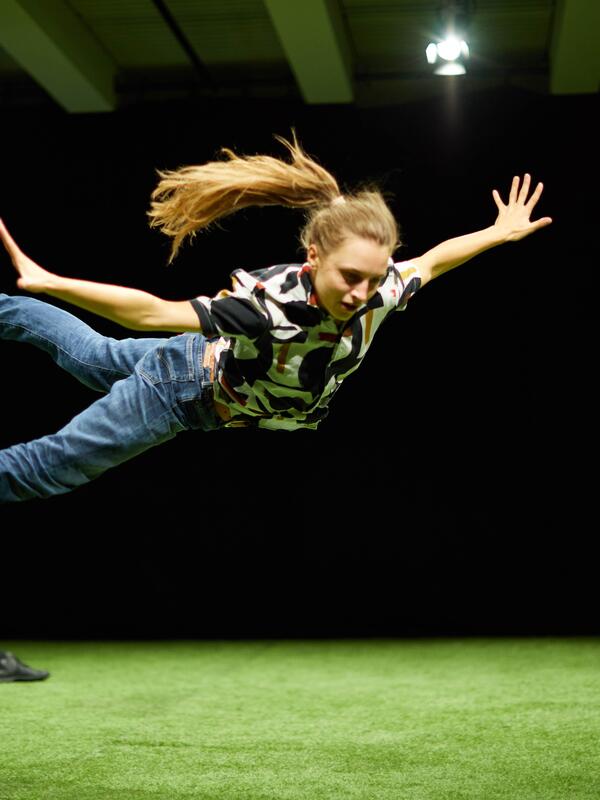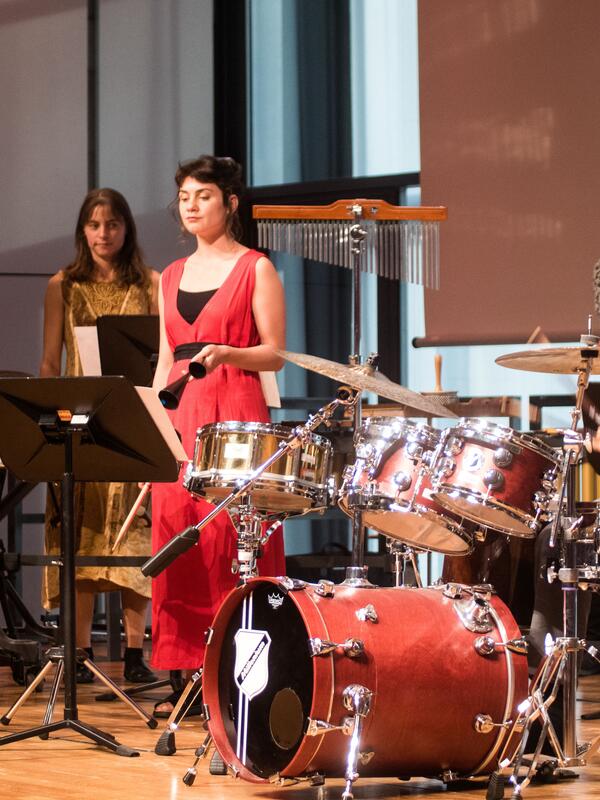Advanced Studies in Music & Dance Education – Orff Approach
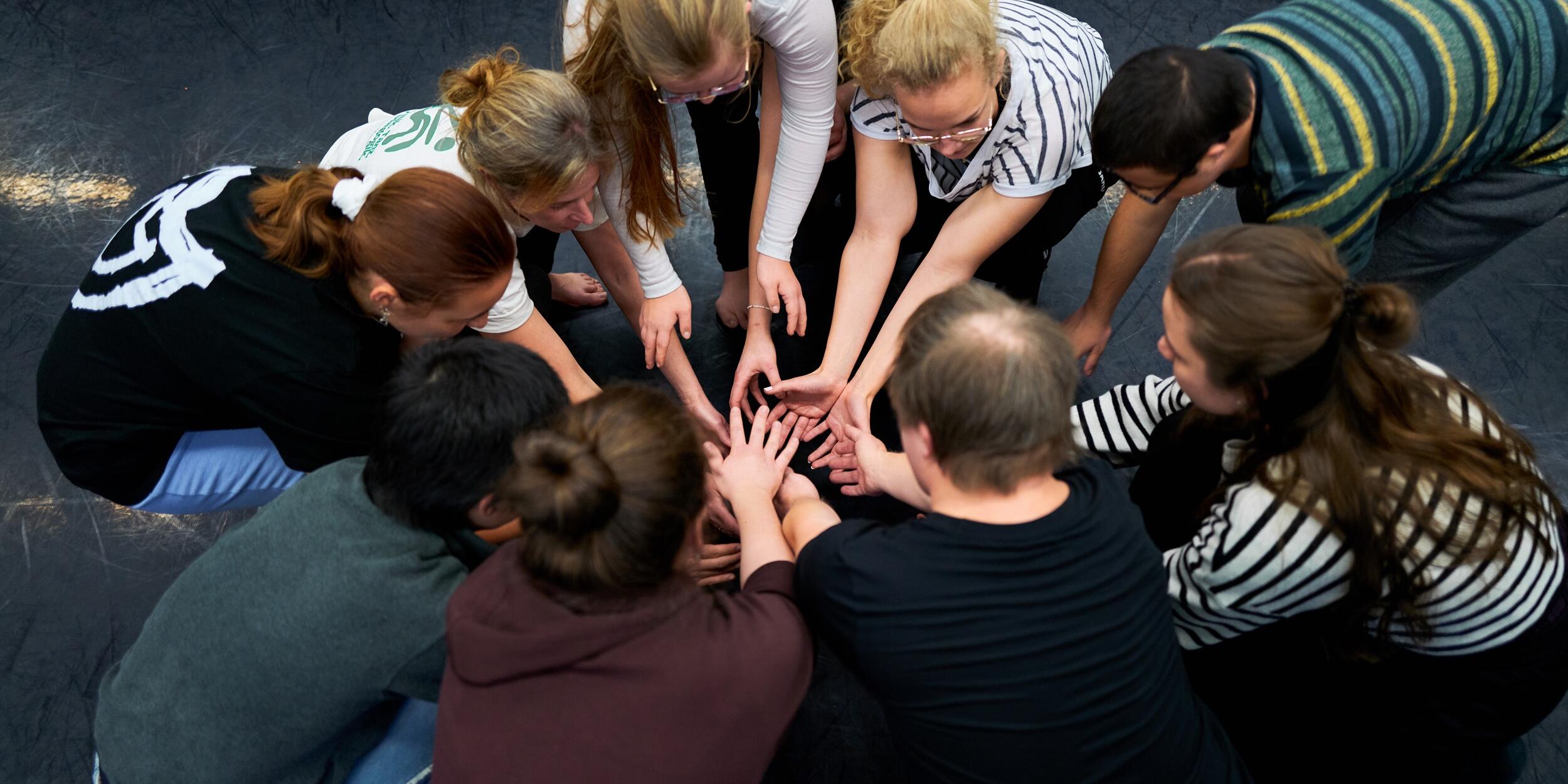
This course at post-graduate level is aimed at educators from all over the world who have already had training or experience in music and dance education based on the pedagogical concepts of Orff-Schulwerk. It offers experienced music and dance teachers an intensive and concentrated course on one of the world's most well-known integrative approaches in music and dance pedagogy in a wonderful setting.
Department of Studies & Examinations
+43 676 88122 492
studienabteilung@moz.ac.at
Length of course
2 semesters / 60 ECTS-AP
Language
English
Application
01.02.-28.03.2026
Downloads
The Carl Orff's approach has greatly influenced music and dance education in many parts of the world. The pedagogical principles of his and Gunild Keetman's Schulwerk are universal and based on a belief in the creative and artistic nature of the human being. The Orff Institute at the Mozarteum University is a centre of this international movement in music and dance education.
Course director: Andrea Ostertag, Doris Valtiner-Pühringer
General information
A fundamental requirement of applicants to this two-semester University Course is that they have completed training or obtained a degree. Alternatively, applicants can provide evidence of a number of years of teaching experience in the area of music or dance pedagogy.
The entrance examination of the two-semester University Course comprises:
- An examination of the candidate’s artistic competence and pedagogical aptitude (= review of video and examination talk, as well as interview questions)
- If English is not the candidate’s first language, the candidate will be required to demonstrate English language competence through provision of a certificate or other form of evidence
Please take a look at the FAQs about registration in Muvac if you get stuck at any of the steps.
The steps necessary for registration are detailed below. Applicants who have already studied at an Austrian university should start with step 3.
2. Once in the MOZonline account: fill in the mandatory statistics UHstat1 (pre-registration for studies) and make a note of the application number that is sent by email upon submission of this information.
3. Create an application account in Muvac
4. Fill out your own profile in Muvac (minimum requirements: personal data, information on expertise matching the desired degree programme, in the CV: current employment and information on previous training)
6. Fill out the application form in Muvac ("Apply now"), being sure to enter your application number (see step 2) or Austrian matriculation number in the appropriate field
Please note: Your application is only valid once you click "Submit application" in Muvac and subsequently receive a green confirmation message from Muvac. Creating a basic account in MOZonline (step 1) or creating a profile in Muvac (step 4) does not constitute a valid application!
After successful submission, you will receive an email from Muvac confirming receipt of your application. You can also check the status of your application yourself after logging into Muvac under Menu -> Applications.
Communication during the application process takes place via Muvac or email, depending on the degree programme. Please ensure that you can be contacted at the email address entered in your profile throughout the entire application process and regularly check whether you have received any new messages in Muvac. You can set your own profile to inform you of any new messages in Muvac by email (Account settings -> Notifications).
The following documents should be uploaded upon registering for the entrance examination:
- Proof of completed training, a degree certificate, or evidence of several years of teaching practice in the area of music or dance pedagogy
- In the case of a completed degree: BA certificate (or final certificate of an equivalent degree) as well as a comprehensive overview of courses taken and grades achieved (Transcript of Records)
- Official confirmation of the principal study/instrument must also be provided, if this is not evident from the aforementioned certificate or from the transcript of records (e.g. "Bachelor of Music" without further detail is not sufficient).
- Applicants whose documents are not in German must provide an official translation of their documents (into German or English) alongside the originals.
- Applicants who also hold other pedagogical, performing arts or academic degrees or are required to provide a transcript of records for each of these.
- Letter of motivation
- CV
- If applicable: Proof of English language competenc at A2 level (List of accepted certificates)
Once the application documents have been reviewed, candidates will be invited to upload their application video. This must be uploaded in the application portal ahead of the in the invitation written deadline. Please make sure to have your video available around the application deadline.
There are two parts to the selection process: a video pre-selection round and an interview.
Video preselection
- Candidates should present their instrumental, vocal, dance and teaching competences in the form of a video, which should be uploaded in the application portal.
- The video should last approximately 30min and include the following:
- A recording showing the instrumental competences of the candidate. Two pieces from different periods and with different characters should be presented. It is not necessary to play from memory.
- A recording showing the vocal competences of the candidate. Candidates should sing a piece for solo voice such as a folk song or a nursery rhyme, which should be performed a capella.
- A recording showing the dance competences of the candidate. Suitable subjects could be a traditional dance sequence or a dance phrase that they have choreographed themselves.
- A recording showing the pedagogical competences of the candidate, in the form of a teaching sequence with a target group of their choice (duration: approx. 20min). The admissions panel would like to see a group teaching setting in which musical and dance content is taught (a composition or choreography by the candidate). The didactic structure of the lesson should be clearly evident. - The precise examination requirements can be found in the implementation guidelines.
Interview
- Dates: 05.05. & 06.05.2026
The interview, lasting approximately 10-15 minutes, will take place online after the initial selection of applications. - Content of the interview: uploaded videos, motivation, background, prior studies, expectations and career prospects
- The interview will be conducted exclusively online. Applicants must ensure they have a stable internet connection and are available for the scheduled online interview. A PC/laptop with a camera and microphone is also required.
€ 7,300 (one-off payment for two semesters)
Students will need to cover the costs of official documents, books and materials, accommodation and day-to-day living costs, excursions and other expenses. Students also pay around €25.00 per semester to the Students' Union. Day to day living costs lie somewhere between €500 and €800 per month depending on the individual.
60 European Credit Transfer System Points (ECTS-AP). Students from abroad should make arrangements with their local universities about having credits recognised.
Pedagogy and Didactics
- Orff-Schulwerk sources and adaptations
- Didactics of elemental music and dance
- Pedagogy and teaching practice
- Music and dance for people with special needs
- Music and dance for different age groups: Early Childhood, Adolescents, Seniors
Music
- Ensemble and improvisation
- Composing with and for children
- Percussion ensemble
- Voice training for children
- Theory and practice of instrument building
Movement and Dance
- Movement and dance technique
- Fundamentals of choreography and improvisation
- Movement accompaniment
- Ethnic dances
- Interdisciplinary projects
Theoretical approaches
- Furthering specific aspects of the study programme
- Carl Orff and his Stage Works
- Aesthetics
- Orff-Schulwerk and the contemporary arts
- History of Orff-Schulwerk
Other Activities:
Excursions
... to schools in and around Salzburg and to places directly connected with the life and works of Carl Orff are planned (his home and museum in Diessen am Ammersee, The Orff Centre Munich, cultural events in Salzburg, Munich, Vienna and elsewhere). The cost of these excursions (transport and overnight accommodation) is not covered by the tuition fees and must be paid for by students themselves.
Class Observations and Teaching Practice
- Observations of classes at the Orff Institute, schools and other institutions nearby is highly recommended.
- Approximately 100 participants (toddlers, young children, teenagers, adults and elderly people) attend weekly classes in music and dance which are taught by Orff Institute faculty as well as students enrolled in the Bachelor and Master Courses.
Examinations
Final assessements requiring a positive result will be carried out at the end of the summer semester and include:
- the performance of a study with original music and dance compositions developed and directed by the student
